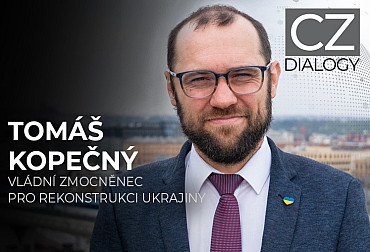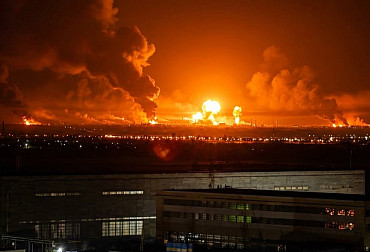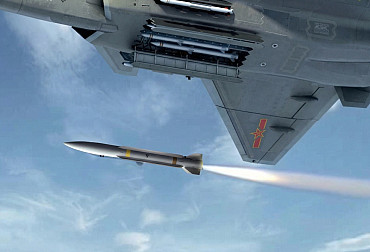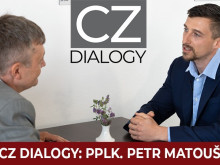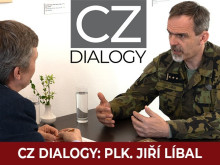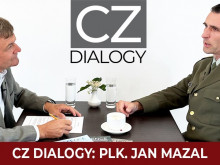Gen. Aleš Knížek: We are helping Ethiopia build a military museum and at the same time returning to the essence of Czech statehood
In the next episode of our discussion program CZ DIALOGUES, Brigadier General Aleš Knížek, Director of the Military History Institute (VHÚ), describes not only the unusual cooperation between the Czech Republic and Ethiopia, which aims to build the first military museum in this African country, but also the efforts of Czech historians to find the lost Czechoslovak AH -IV-H. We also talked about the transformation of the National Memorial in Vítkov, the growing public interest in military history, and the significance of Veterans Day, which we commemorate on November 11.
Video: Interview with Brigadier General Aleš Knížek, Director of the Military History Institute / CZ DEFENCE
General Knížek speaks with enthusiasm and respect about cooperation with Ethiopia: "Ethiopia is the birthplace of humanity, and we strive to approach it with humility and help our Ethiopian colleagues in the fields of museology, military history, and collection preservation."
Cooperation between the Military History Institute and Ethiopia began in connection with the Czech Prime Minister's visit to Addis Ababa and was subsequently confirmed during a later visit by the Ethiopian Prime Minister to Prague. However, General Knížek points out that personal contacts with this African country go back much further. "I was in Ethiopia for the first time ten years ago, and my main goal at the time was to find a Czechoslovak AH-IV-H tank, which was exported to Ethiopia in 1950," explains the director of the Military History Institute, adding that it was the last export of the Czechoslovak tank design school, which is why this piece has extraordinary historical value.
Ethiopia, a country with more than 120 million inhabitants, has proven to be fascinating for military historians, according to Knížek. "It is full of contrasts and historical layers. When we were near the Somali border, we found not only American post-war tanks, but also cannons from World War I and rare weapons that would be difficult to find anywhere else today," says the general, whose team is now gradually going through five large logistics centers of the Ethiopian army, where military equipment has been collected for decades. "We have already been to four of them and are now preparing for the fifth. We hope that this is where we will find the Czechoslovak tank we are looking for," adds General Knížek with a smile. And why does the director of the Military History Institute believe that the Czechoslovak armored vehicle could still be preserved after decades? "There are no smelters in Ethiopia, so there is a chance that the tank is lying somewhere, perhaps only partially damaged, but still existing. Moreover, the desert often helps to preserve things that would have disappeared long ago elsewhere," says Knížek.
In addition to searching for the Czechoslovak tank, the Military History Institute's mission in Ethiopia has another fundamental goal – to help Ethiopia build the first military museum in the history of this African country. "It's a completely realistic project," says Knížek. “The Ethiopian side is very interested, they saw our new museum in Žižkov and would like to draw inspiration from it. There is already a concrete plan for a new building, which should be located next to the Ministry of Defense.” The Military History Institute is cooperating on this matter primarily with Dr. Hassen, an archaeologist who studied in Bratislava in the 1980s. "It's fascinating that our paths have crossed in this way after so many years," says General Knížek, adding: "Together, we are helping with the cataloguing of collections, work methodology, digitization, and the design of the entire museum." According to him, Ethiopia needs not only material support but also the transfer of know-how. "We are helping them understand the principles of museology, record-keeping, preservation, and restoration of collections. Our colleagues from Ethiopia should soon arrive for a long-term internship in the Czech Republic to see how it all works in practice," reveals the director of the Military History Institute, adding that none of this would be possible without the help and cooperation of the Czech Embassy, headed by Ambassador Miroslav Kosek.
In addition to its foreign activities, the Military History Institute is also fully committed to domestic projects. "Since we took over the National Memorial in Vítkov, we have managed to resolve the transfer of real estate and cultural monuments, which was a difficult task," describes General Knížek. A new exhibition dedicated to Czech and Czechoslovak statehood is currently being prepared and should open next year. "The memorial was created to celebrate the founding of the Czechoslovak Republic, and we want to return to this original meaning. It will be a modern exhibition with a number of unique collection items," says the director of the Military History Institute.
According to Knížek, recent experience confirms that interest in military history is growing: "The pandemic and the war in Ukraine have changed public perception. People are once again realizing the importance of the army and have become more interested in military history." At the same time, the general points out that the institute also emphasizes education: "We have an excellent museum education department that prepares programs for children, schools, and seniors. We want them to learn about history up close—through specific stories, objects, and places."
The approaching Veterans Day (11 November 2025) is one of the key moments of the year and we were interested in what the Institute of Military History is planning in this context. "This year we will again promote the DiGiMÁK project, which combines modern technology with respect for tradition," explains General Knížek, adding: "It's a simple way to support the Military Solidarity Fund and at the same time make a symbolic donation of a digital poppy - perhaps to a specific hero, family member or a specific battle, such as Sokolov or Dunkirk. I personally donated the first one to General Rudolf Medko, the first director of our institute."
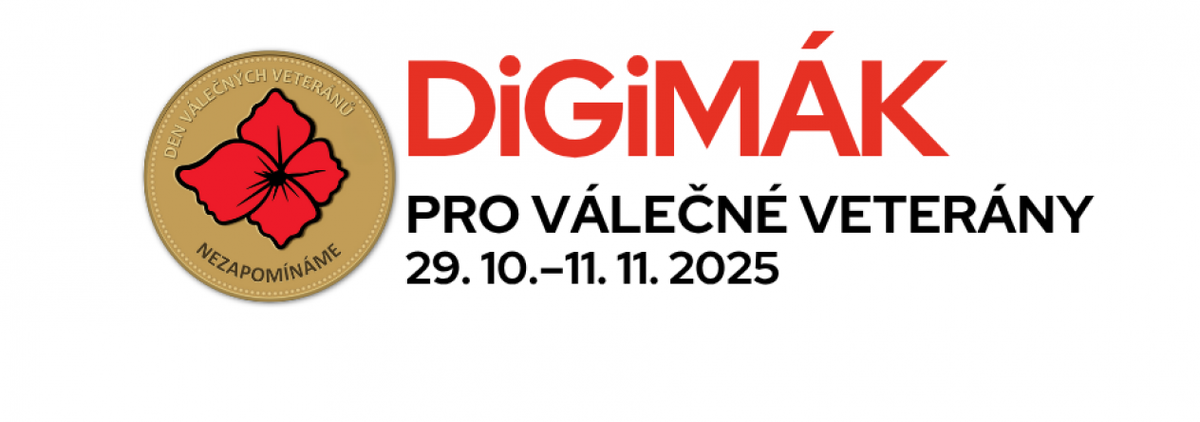
The DiGiMÁK project in the Czech Republic is a joint initiative of the Ministry of Defense of the Czech Republic, Charity Czech Republic, and the Military History Institute in Prague, whose goal is to honor all those who have dedicated their lives to defending our homeland. It was established last year as a digital counterpart to the Czech Republic's Wolf Poppy, which has become a symbol of gratitude and respect for soldiers and veterans and represents the simplest way to express thanks to those who fought for our freedom or are currently protecting it.
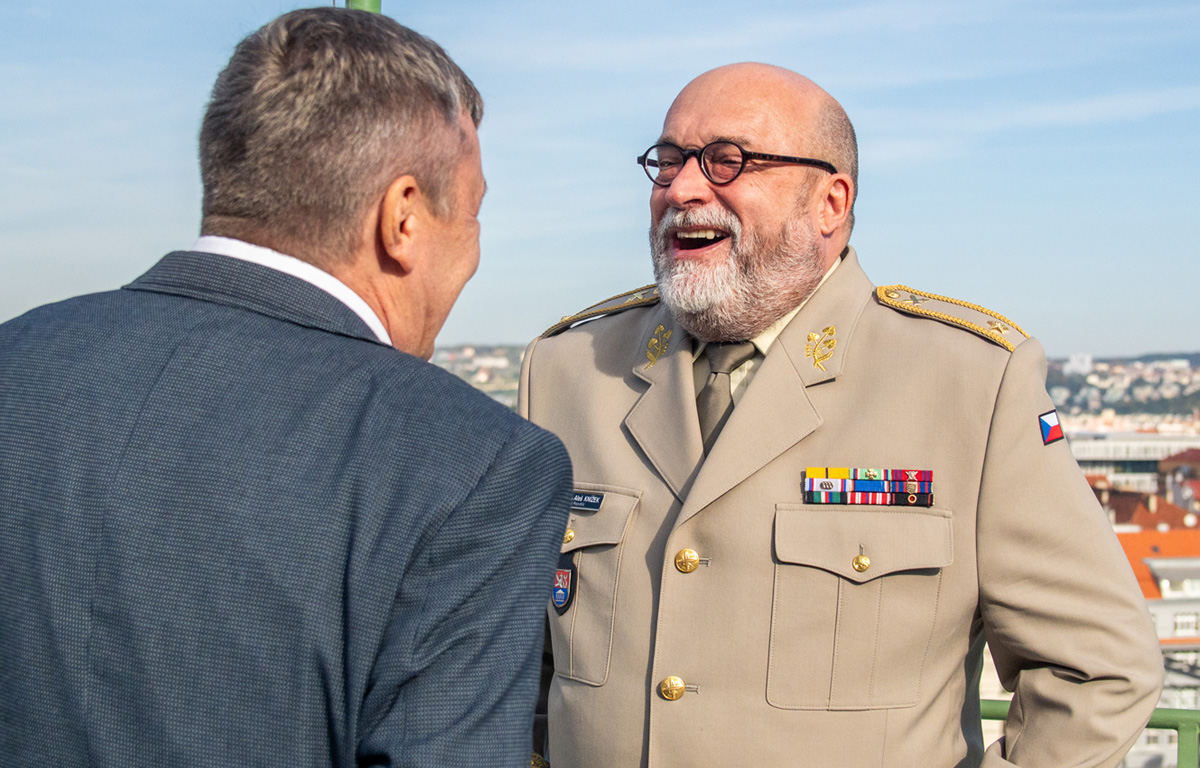
The design of DiGiMÁK is inspired by a gold coin, the center of which is decorated with the Czech Republic's wolf poppy. The imaginary obverse of the coin bears the inscription "War Veterans Day 2025," while the reverse side can be personalized with a dedication—for example, the name of a favorite war hero, modern veteran, or relative who served in the armed forces. After making a contribution, the donor will receive an email with a link to their own DiGiMÁK with the selected dedication. They can download it as an image and share it further, for example on social networks or in company documents. Just like when purchasing a physical Poppy, people also contribute to supporting war veterans through DiGiMÁK. All proceeds from the collection go to the Military Solidarity Fund, which helps a wide range of veterans, from World War II participants to members of modern foreign missions.
If you are considering visiting the Memorial at Vítkov or are interested in what else the Military History Institute has in store, listen to the entire interview at the beginning of this article.











